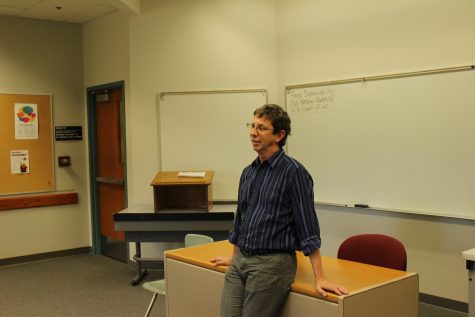Professors Tips for Success
April 9, 2017
Professors are a valuable resource to students and they can often times give advice to the struggling or curious student. In order to get where they are today, professors had to once be students. Here are some professor tips for success.

1. Embrace the small class sizes
Jacquelyn Singleton, assistant professor of elementary education, said in her college experience, embracing small class sizes and knowing that she had a close support system was very important to her success. She said having small class sizes made it feel as though she was able to be more connected to her professors and peers. She said she felt that professors cared about her well being and they knew who she was.
“My professors knew me by name and held me accountable for my work,” Singleton said. “Knowing that someone cared about whether or not I was successful made all the difference.”
Alongside the benefits of the professors knowing her personally, Singleton said small class sizes enable her to help create study groups with other students.
“We didn’t only study for tests, we also did group projects together and just served as a sounding board and support system when things were stressful,” Singleton said.
Singleton said that friends outside of your major and outside of IU Southeast may not understand what you are going through and your struggles in the same way that people in your major and in your classes may.
2. Find a mentor early in your college career

Tammy Voigt, professor of practice in strategic communication, said finding a mentor during your freshman year can help students be successful throughout their college career.
“Befriend an upperclassman who has traveled the same road that you hope to travel and pick his or her brain,” Voigt said. “Ask about professors and projects, about getting involved, about how to manage your time, about internships and networking — anything and everything.”
Voigt said when she was a freshman she had a person like this and the insights and advice provided to her was invaluable.
IU Southeast Center for Mentoring is one of the resources available to students looking to utilize Voigt’s advice. Located in University Center South room 205, the Center for Mentoring has options for students to become a mentor or mentee, depending on what they are looking for.
According to the Center for Mentoring website, “Mentors serve in various roles, and work with students in their personal, academic, and career development. Mentors serve as guides, friends, advocates, active listeners, allies, and supporters.”

3. Take all of your classes seriously
Michael Abernethy, senior lecturer of communication studies, said to take all of your classes seriously, always. Even if you do not like a course or do not want to take one, but must, he said to take them seriously or it could cause harm.
“Blowing off a class because it doesn’t appeal to you hurts both your GPA and reputation among faculty,” Abernethy said. “Every class in your degree plan is there because it has value, whether you see what it is or not.”
One way Abernethy said students can be successful and take their classes seriously, is to communicate with your instructors. Communication can prevent students from getting behind when they have issues that professors may not know about.
“Whether it is about problems at home or in the classroom, you need to keep faculty informed when things happen that throw you off your normal pace,” Abernethy said. “There’s no way we can help you overcome problems if we don’t know about them.”
4. Create “The List”

Voigt said another tip for students to take to heart when they are working towards success is to create “the list.” Voigt said “the list” is a Microsoft Word document that you should create as soon as you start college, or as soon as you possibly can. Then, get really involved on campus.
Both Abernethy and Singleton said to get involved on campus. Abernethy said when he was in college, he got involved on campus as a way to get out of the same boring routine of work, school and homework.
After getting involved, Voigt said the next step with “the list” is adding in every leadership position, service on committees, special projects, internships and job shadows to the list.
“This will really help you keep track of those skill sets you are developing outside the classroom and provide a constant snapshot of where your strengths are and where you may need some more experience,” Voigt said.
Then, Voigt said, in four years, the skills you have built, such as leadership, time management, critical thinking, and other skills, will all be easily accessible.
“[What] employers are looking for will be right there, in one place, ready to be crafted into a fantastic resume,” Voigt said.
Professors were students once and they have experience in what it is like to be a struggling college student who needs help sometimes. These four tips are only four suggestions from only three professors. Students have professor’s expertise at their disposal.

